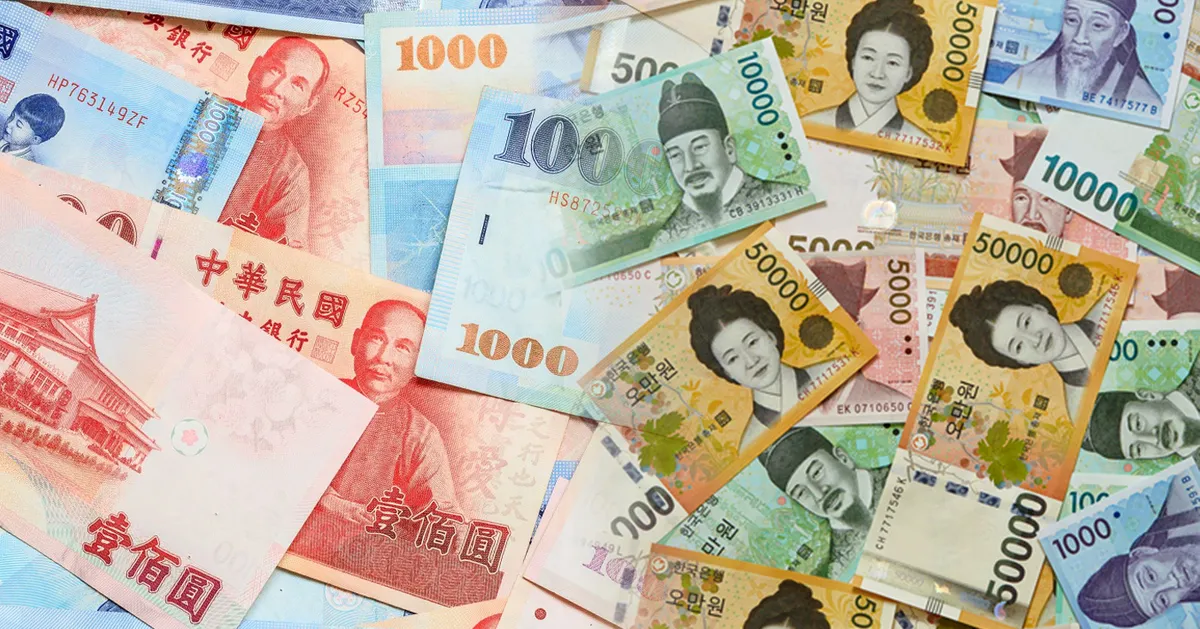It's the age old question. When a man and a woman go on a date, someone needs to pick up the check. Is it ok to go dutch, or should someone offer to pick up the whole tab?
Many people have strong feelings on this matter. Some people want to pay, but think it speaks to the character of their date if they at least reach for the bill. As with most divisive topics, there might never be a correct answer.
At least we can examine the survey results and see how Koreans feel about this topic.
Blind Dates

The Mentality Of Korean Men And Women On Blind Dates (2016 Survey Results)
Blind dates can be a stressful event for everyone involved. Sometimes it all results in a love story worthy of a Hollywood movie. Other times, it results in a story about an awkward date.
Perhaps nowhere is the "who pays on a date" issue more in the spotlight than on a blind date.
Example Question: "Do you act out of a need to save face?"
This question and others like it were focused on learning about whether people were willing to do things that they disagreed with simply for the sake of courtesy.
Among those polled, 71% of women said that they would behave courteously and keep up appearances even if they felt that the date wasn't going well. On the other side, only 52% of men said that they would do the same.
From this, we can see that more women than men, when the date turns sour, will still act courteously until it's over.

Fake Courteous Behaviors
| Fake Courteous Behavior | Men | Women |
Pay the bill | 38.9% | 6.5% |
Leave the date | 32% | 19.4% |
Praise the other person | 21% | 41.4% |
Stay in contact after the date | 8.2% | 32.8% |
From this survey, we can see that significantly more men would be willing to pay for a date even if they felt it wasn't going well or felt like they wouldn't even offer a second date. They would even be more likely to leave the date outright.
Women are much more likely to keep up a positive appearance during the date and even right up to the end pretend that it's going well. They are also 4 times more likely to maintain contact after the date.

Why Commit "Fake Behavior?"
| Reason | Men | Women |
Not to insult the matchmaker | 37.9% | 22.6% |
Keep the other person from being embarrassed | 28.6% | 18.9% |
Wanting to make a good impression | 24.3% | 14.1% |
Most blind dates are arranged by a mutual friend or acquaintance of both parties. So both men and women's primary motivation to maintain appearances during the date is based on their relationship with the matchmaker.
Who Pays?

Proportion Of Korean Men And Women Who Pay For Dates (2019 Survey)
Now, on to the big question: Who really pays for the dates? We can look at the survey results to find the pattern. The survey was conducted among 422 unmarried men in their 20's and 30's.
The results were rather interesting. 36.7% of men said that the ratio was about 60:40 (60% of the time men pay, 40% of the time women pay). 28% of men said it was 70:30 to 80:20. 19.7% of men said it was 90:10 or 100:0.
From these results, we can see that a vast majority (over 80%) of men feel like they pay all or at least a significantly larger portion of the dating expenses.

Among those surveyed, only 13.3% of people said that dates were split 50:50 or women paid more than men.
The average cost of a single date is about 63,500 won (around 62 USD). This can include the meal and coffee afterwards, which is fairly common.
Some people might even invest in a gift to give to the other person prior to the date. Dating can be a really expensive hobby.

In addition, many couples fight about the cost of dating and the issue of who should pay. 71.2% of men reported quarreling with their partner about the fact that they have to pay for each and every date. Furthermore, nearly 3% of men have fought because they didn't pay for the bill.
On the female side of the equation, 48.4% of female correspondents said they fought with their partner about paying because they wanted to save money. 33.2% said that due to the income disparity between men and women, it makes more sense that men should pay and they have fought with their male partners about it.
Couples who fight about money in the dating phase are likely to have similar issues when the relationship moves to the next stage.
Attitudes About Paying

South Korean Men And Women Pay Mentality (2020 Survey)
Finally, let's review a survey of both men and women who participated in blind dates and/or dating events (shows, speed dating, etc.).
In order to examine if there is a correlation between economic status and attitude toward paying, men were divided into 3 categories: 1) Men who are currently economically prosperous and they have amicable feelings toward their partner, 2) they are economically not well-off, and 3) they are well-off but they don't really like their partner.
Group 1
The consensus of this group of men was that they felt like it was their duty as men and when they meet someone that they like, they don't worry about the money because it's worth it to spend time with their partner.
Group 2
The average opinion here was that they liked their partner, but felt self-conscious about their empty pockets. Also, they were more fearful and sensitive to the idea that their partner might be the type of girl who wants to be treated and/or expect men to pay for everything. So as a test, the men would ask the women if they were willing to buy coffee for them as a reward for buying dinner.
Group 3
This group had more wide-ranging justifications to offer. Common reasons were that they wanted to save face or maintain a good relationship with the matchmaker (which coincides with the aforementioned survey from years before).
A university student said that he was able to pay for the date, but didn't want to due to lack of amicable interest. However, he didn't want a rumor getting started that he was just dating to beg for food.

In the same survey, women were divided into 3 groups: 1) Women who have favorable feelings for their partner, 2) women who have negative feelings about their partner, and 3) when the man asks the woman to pay.
Group 1
"Even if there are positive feelings, I am not likely to take initiative to pay," was the most common choice among women in this group. Their primary motivations behind this opinion is that they just want to fulfill their societal roles and expectations and they want to give men the opportunity to pay and feel more confident in their ability to provide. Some women even said that paying for dinner might come off as emasculating.
Group 2
When there are negative feelings between the two people, women are more likely to go dutch on the bill because they don't want to give the impression that they want a second date. They also don't want to feel like they owe anyone.
Group 3
Women who answered this question generally said that they would agree to split the bill casually (after all, they met for the first time), but they would be confused or even a little hurt about the proposal, feeling that they were not liked or that the other party might be stingy.
Although Korea is a largely equal society, it's clear to see that there is still a pervasive attitude about the gender role that men should pay on dates. It also leads to a feeling of, "I pay, so I have more power," i.e. a support for the male superiority complex.
This is a very divisive topic not only in Korea, but in most countries around the world. Although the opinions discussed in this article do not reflect all Koreans, it does provide a picture for the overall attitude regarding this issue.




